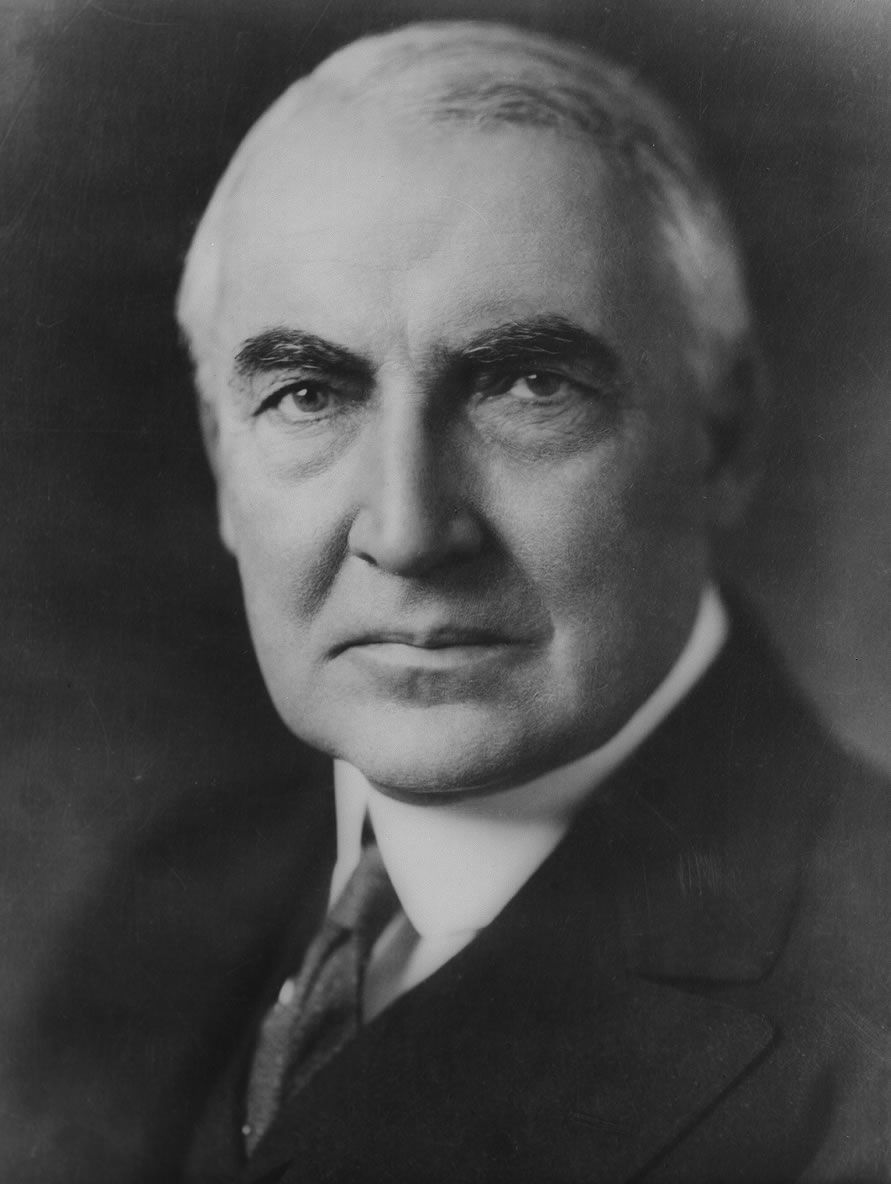America’s present need is not heroics, but healing; not nostrums, but normalcy; not revolution, but restoration; not agitation, but adjustment; not surgery, but serenity; not the dramatic, but the dispassionate; not experiment, but equipoise; not submergence in internationality, but sustainment in triumphant nationality. (ang.)
Warren Harding (polityk) słynne cytaty
„Nie martwią mnie wrogowie. To moi przyjaciele spędzają mi sen z oczu.”
Źródło: Longin Pastusiak, Prezydenci, t. 2, Warszawa 1987, s. 413.
Warren Harding (polityk): Cytaty po angielsku
1918 address to the Sons and Daughters of the American Revolution.
“We want them to be Republican because of what we mean to do for the United States of America”
1920s, Nationalism and Americanism (1920)
Kontekst: The misfortune is not alone that it rends the concord of nations. The greater pity is that it rends the concord of our citizenship at home. It's folly to think of blending Greek and Bulgar, Italian and Slovak, or making any of them rejoicingly American, when the land of adoption sits in judgement on the land from which he came. We need to be rescued from divisionary and fruitless pursuit of peace through super government. I do not want Americans of foreign birth making their party alignments on what we mean to do for some nation in the old world. We want them to be Republican because of what we mean to do for the United States of America. Our call is for unison, not rivaling sympathies. Our need is concord, not the antipathies of long inheritance.
1920s, Nationalism and Americanism (1920)
Kontekst: The misfortune is not alone that it rends the concord of nations. The greater pity is that it rends the concord of our citizenship at home. It's folly to think of blending Greek and Bulgar, Italian and Slovak, or making any of them rejoicingly American, when the land of adoption sits in judgement on the land from which he came. We need to be rescued from divisionary and fruitless pursuit of peace through super government. I do not want Americans of foreign birth making their party alignments on what we mean to do for some nation in the old world. We want them to be Republican because of what we mean to do for the United States of America. Our call is for unison, not rivaling sympathies. Our need is concord, not the antipathies of long inheritance.
1920s, The American Soldier (1920)
Speech delivered in Birmingham, Alabama, quoted in the Christian Science Monitor, 27 October 1921, p. 2.
1920s
1910s, The Republic Must Awaken (1917)
1920s, The American Soldier (1920)
1910s, The Republic Must Awaken (1917)
1920s, The American Soldier (1920)
Speech delivered to a segregated, mixed race audience at Woodrow Wilson Park in Birmingham, Alabama on the occasion of the city's semicentennial, published in the Birmingham Post (27 October 1921).
1920s
Speech at Birmingham, Alabama, published in the Birmingham Post (27 October 1921) quoted in Political Power in Birmingham, 1871-1921 (1977) by Carl V. Harris (1977) University of Tennessee Press, ISBN 087049211X.
1920s
1920s, The American Soldier (1920)
“I don't know much about Americanism, but it's a damn good word with which to carry an election.”
Actually an exchange between journalist Talcott Williams and Sen. Boies Penrose (1919)
What is Americanism?
Damn if I know, but it's going to be a damn good word with which to carry an election.
Misattributed
1920s, Nationalism and Americanism (1920)
1920s, The American Soldier (1920)
1920s, Nationalism and Americanism (1920)
Speech during Warren Harding's 1920 presidental campaign, critizing Woodrow Wilson's Haitian policies; quoted in Democracy at the Point of Bayonets (1999) by Mark Penceny, p. 2. (The Assistant Secretary of the Navy he refers to is Franklin Roosevelt, who was the Democratic vice-presidential candidate in 1920).
1920s
1920s, Nationalism and Americanism (1920)
Remark to editor William Alan White, as quoted in Thomas Harry Williams et al. (1959) A History of the United States.
1920s
1910s, The Republic Must Awaken (1917)
1910s, The Republic Must Awaken (1917)
Speech at Norfolk, Virginia (4 December 1920), quoted in The Times (6 December 1920), p. 17.
1920s
“I am not fit for this office and should never have been here.”
Quoted in Nicholas Murray Butler (1939) Across the Busy Years vol. 1.
1920s
Relayed by Bishop William F. Anderson as a remark by a friend of Harding, in "Pictures Harding as Man of Prayer" (2 April 1922) New York Times
Attributed
Speech https://books.google.com/books?id=POhHuoGILNYC&pg=PA51 (12 April 1921).
1920s
Speech in Boston, Massachusetts (24 May 1920); Harding is often thought to have coined the word "normalcy" in this speech, but the word is recorded as early as the 1850s as alternative to "normality".
1920s
1910s, The Republic Must Awaken (1917)
Inaugural address (4 March 1921).
1920s
Remark to Judson Welliver, as quoted in Francis Russell (1968) The Shadow of Blooming Grove.
1920s
